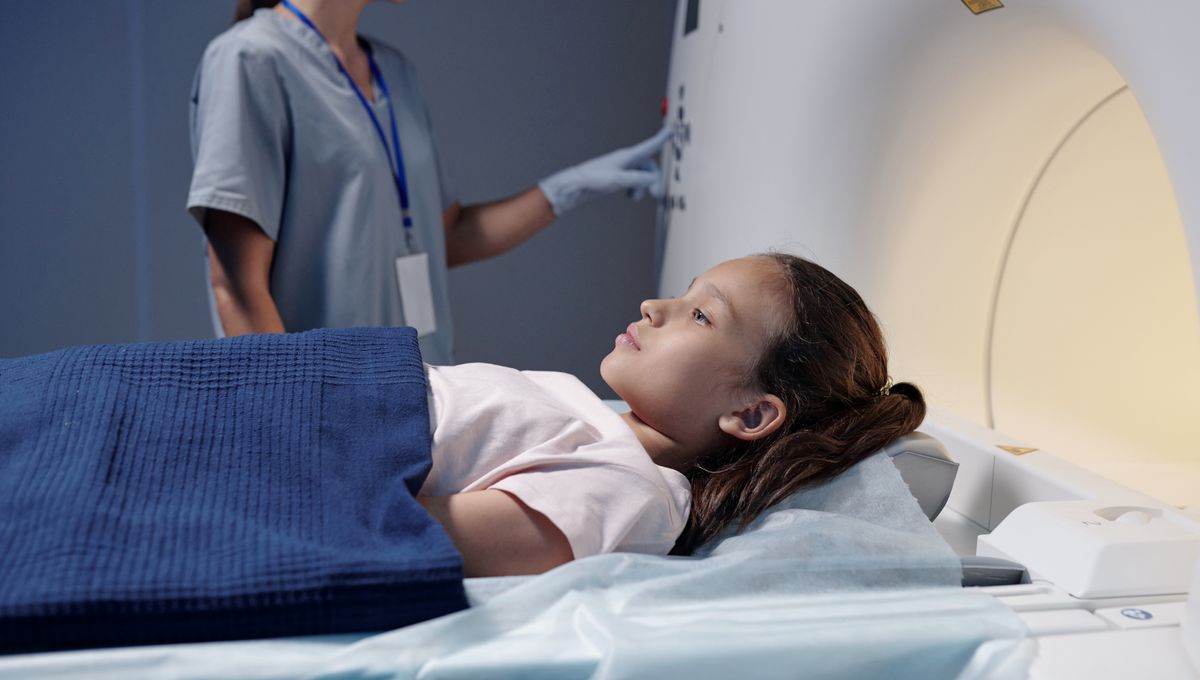
As we’ve learned more about the SARS-CoV-2 virus over the last four years, we’ve discovered that far from being just a respiratory illness, COVID-19 can affect many different body systems, including the brain. Despite the advances that have been made, we still have a lot to learn about the damage COVID-19 can cause, particularly in children. A new study collected brain scan data from nearly two years’ worth of scientific literature to try to summarize what we know so far.
From an initial search procedure that yielded almost 10,000 articles, the authors of the study whittled them down to 96 for a comprehensive review, after excluding those that were unsuitable for reasons such as not containing the correct imaging data or not focusing on pediatric COVID cases. The final set of articles included data from 327 patients.
The data came from a diverse range of countries across Asia, Europe, and the Americas. Most of the imaging was obtained using magnetic resonance imaging (MRI), but some studies also used computed tomography (CT) or other methods.
The results showed that in children with COVID who exhibit neurological symptoms, this can often be seen as a physical change within their brain.
“Our findings reveal that a substantial proportion of pediatric COVID-19 patients with neurological symptoms exhibit abnormal neuroimaging findings, with 43.74 percent of children in the included studies demonstrating such abnormalities,” the authors write.
In the initial wave of the pandemic, much of the messaging focused on the fact that children appeared to be at a lower risk of serious disease than adults, something many found to be a comfort during a time of extreme upheaval and anxiety. Over time, this picture has become more nuanced. While kids often can bounce back more quickly from the infection, they are still at risk of complications and long COVID, as Yale pediatric specialist Dr Carlos Oliveira explained for the World Health Organization.
In the study, the authors identified a range of different neurological signs in the children whose brains were scanned. One of the most common was encephalitis, or inflammation of the brain. This is a known complication of COVID-19, but efforts are still underway to figure out how common it could be. Some of the other findings included swelling, vascular abnormalities, and inflammation of the spinal cord.
“The observed incidence of neurological abnormalities in pediatric COVID-19 patients raises several important clinical and research implications,” the authors summarize. “First, it highlights the necessity for a high index of suspicion for neurological complications in children with COVID-19, especially those presenting with neurological symptoms.”
“Second, the findings of this study emphasize the importance of continued research into the long-term consequences of COVID-19 in children.”
The study has some limitations. For example, by defining their search period as beginning in December 2019, the authors included research from the very early period of the pandemic when comparatively little was known about the virus. It is also tricky to say for sure that imaging abnormalities are causally linked with COVID-19 infection, as they could in some cases be caused by pre-existing conditions or medical procedures.
“These limitations underscore the necessity for future prospective studies that consider comorbidities and conduct more intricate analyses to affirm the potential association between COVID-19 and neuroimaging findings,” they conclude.
COVID-19 is no longer classed as an emergency, but that doesn’t mean the pandemic is over. This investigation underscores the need for ever more research in our quest to fully understand what this virus can do.
The study is published in Scientific Reports.
Source Link: Abnormal Brain Scans In Children With COVID-19 Revealed In Data From 96 Studies